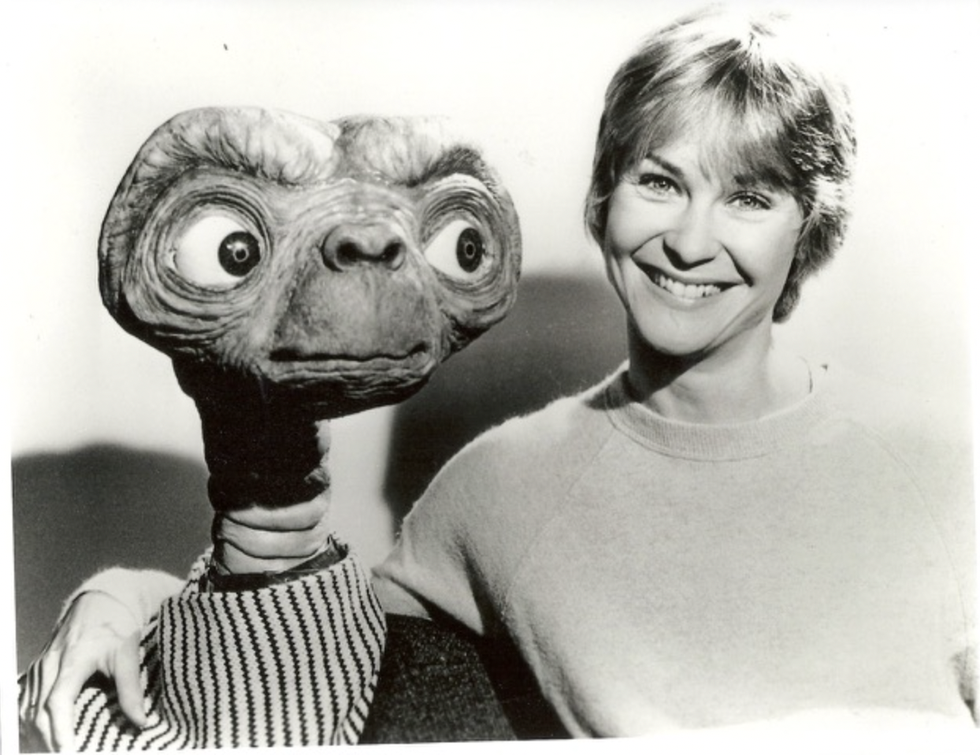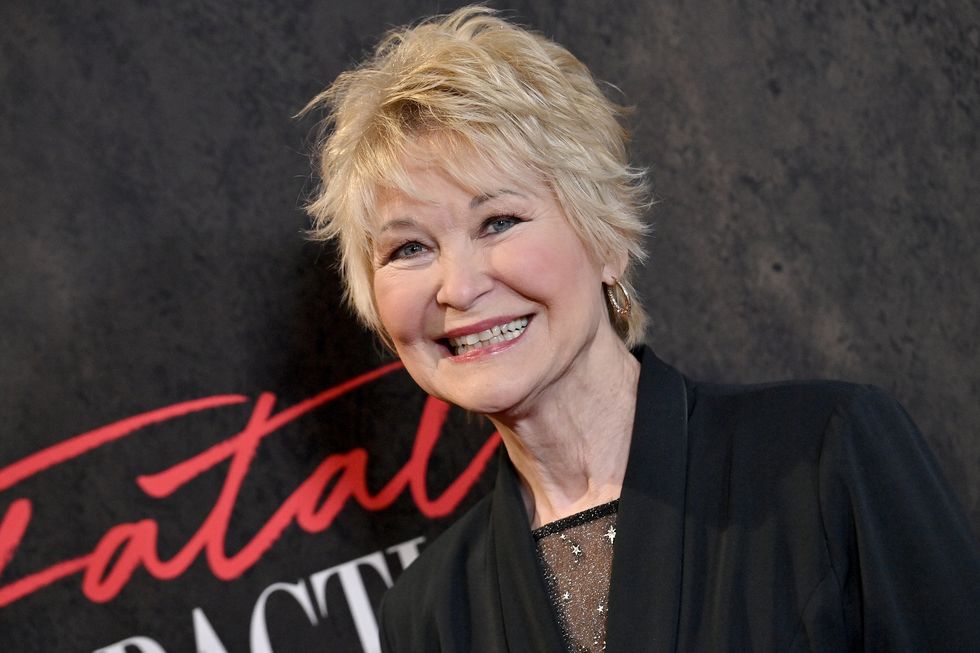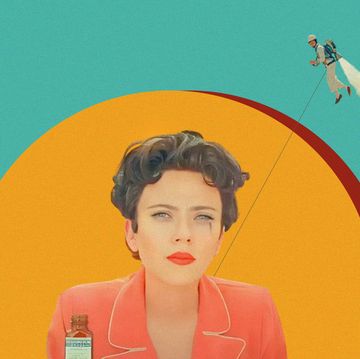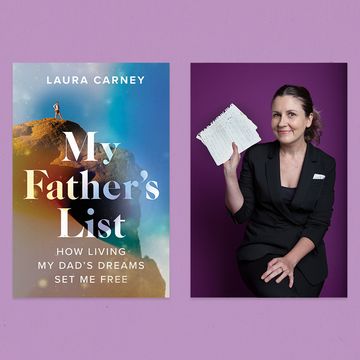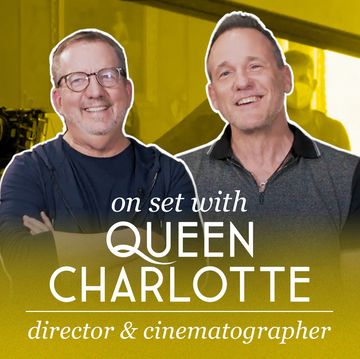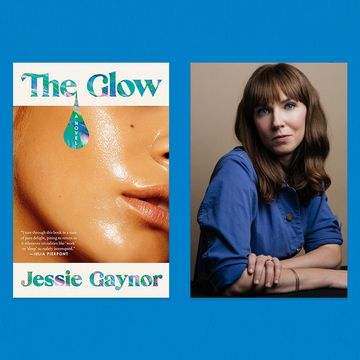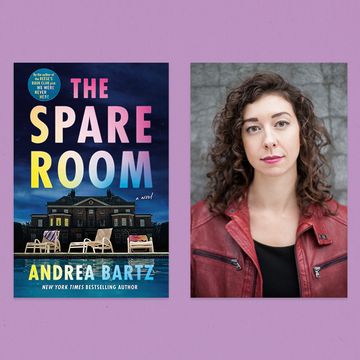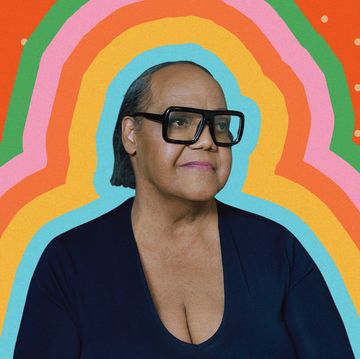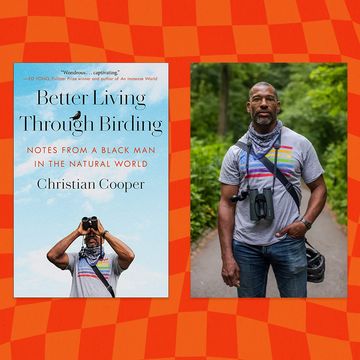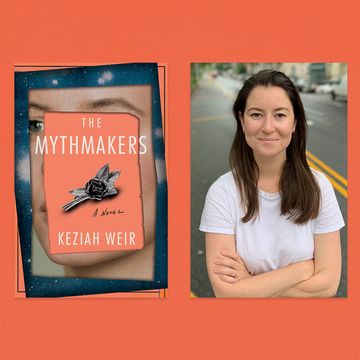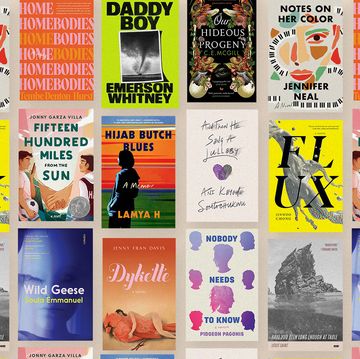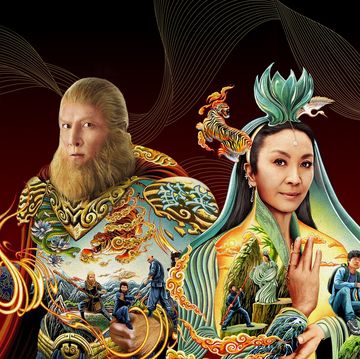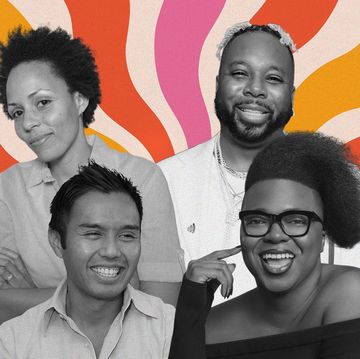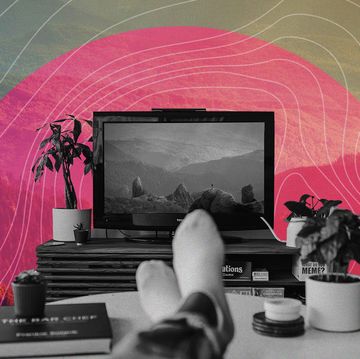According to her official bio, Dee Wallace is “quite possibly the most active woman in entertainment.” Although such a lofty claim might come across as hyperbole, in Wallace’s case it may very well be fact. With nearly 300 credits (and counting!) to her name on IMDb, she is one of the few performers today whose work has spanned genres, generations, and platforms. She’s a horror film icon who at the same time is widely recognized for her more family-friendly fare. Her projects have been screened in theaters, aired on television, and streamed across various services. She’s worked with countless directors, including Steven Spielberg, Peter Jackson, and Rob Zombie. And she’s probably one of the only actresses who has been nominated for both a Daytime Emmy Award as well as a Fangoria Chainsaw Award.
If her name still doesn’t ring a bell, let’s review a few of her film credits: E.T. the Extra-Terrestrial, The Howling, The Hills Have Eyes, Cujo, Critters, and The Lords of Salem. On television, she’s appeared in nearly every popular series over the past 50 years, including Taxi; Murder, She Wrote; L.A. Law; Ally McBeal; Felicity; and Shondaland’s own Grey’s Anatomy. From 2015 to 2019, she starred in Amazon’s Just Add Magic, and she can currently be seen in the Paramount+ series Fatal Attraction.
But what many people may not know is that Wallace is also an intuitive life coach and healer who hosts a weekly call-in radio show, offers private sessions for those seeking clarity around life’s challenges, and authors books on manifesting positive changes.
All her work, she tells Shondaland, boils down to one thing: love. “If you want something, love it more, and love yourself more,” she says. “It’s the most powerful tool we have to create with. Most of us still think it’s this kind of namby-pamby, little, mushy thing. It’s not. It’s a force of creation. So, just go to love. That’s always where the answer is.” With multiple projects already released this year, and 11 more in various stages of production, the 74-year-old Wallace shows no sign of slowing down. “I love [working],” she says. “I just love it. It’s who I am. It’s what I do. I just want to stay vital and interested and full of energy and love until I decide to leave.”
Wallace recently spoke with Shondaland about finding fame with E.T., working as a healer, and why Cujo’s Donna Trenton is her favorite role.
SANDRA EBEJER: Though you’d been working as an actor for a number of years, you became widely known in 1982 with the release of E.T. the Extra-Terrestrial, which was an international phenomenon. What was it like to suddenly have that level of fame?
DEE WALLACE: A lot of times, I get the question “How did E.T. change your life?” It changed my business because people connected my face with my name. Did it change who I am? Not at all. I’m proud to be able to say that. You know, you can take the girl out of Kansas, but you can’t take Kansas out of the girl. My mom taught me those good Midwestern, grounded values. The biggest challenge I had with E.T. was that when I was growing up, we were very poor. I heard [people say], “They’re the rich people; we’re the good people. They’re the society people, but we’re the humble people that God loves.” So, cut to E.T. I was paid a good salary, and I was catapulted to fame, and all of a sudden, that little girl in me went, “Oh, my God, I’m one of them!” I really had to break down all of my early trainings and the falsehoods about that. In the long run, it was a huge gift to me. I don’t think it’s a mistake or happenstance that I starred in the movie E.T. because it’s everything I teach in my healing work today.
SE: How so?
DW: Well, what’s the biggest message from E.T.? Keep your heart open. Know what you want. He knew and had an intention that he was going to get back home. You have to know what you want if you’re going to manifest it in this life, and you have to keep your heart open and love whatever you want to manifest. And then you have to trust the universe, which in E.T. was exemplified by the children. He allowed the universe around him to come and help him in his chosen intention of getting back home.
SE: A year later, you starred in Cujo, which was very different from E.T. Anyone who has seen Cujo undoubtedly remembers the car scene, which is just as terrifying today as it was 40 years ago. What was that production like? It must have been grueling.
DW: It was. It’s the hardest thing I’ve ever done. They treated me for exhaustion for weeks after I finished that film. It’s also my favorite film, as far as the breadth of my work. I had to dig very deep into myself to truthfully portray [Donna Trenton]. Working with Danny Pintauro [who played Tad Trenton] was an absolute dream. That kid was like a 30-year-old in a 6-year-old body. I just got up every morning and thanked God I got that kid [laughs]. When you add the dog and a 6-year-old kid — I mean, half the time I was just along for the ride. I had to react to whatever both of those entities threw at me to keep it real. But man, Danny Pintauro was amazing. I mean, like all the kids I’ve ever worked with, I mothered him, I protected him, I made sure he understood at all times what we were doing and that I was there.
Karl Miller, the trainer of the dogs, was such a huge part of bringing that movie to life. There were 13 dogs that played Cujo, and all of them were trained to go after toys. They were all wagging their tails; we had to tie their tails down half the time because it was a big game to them. But they were taught to look ferocious, and when you as the actor were in the scene, during the scene it was scary. [But] were we ever afraid of the dogs? Never.
SE: Though I’ve been a fan of your acting for decades, I was unaware until recently of your work as a healer. How did that begin?
DW: I used to get messages when I was a little girl. The first one that I remember was I woke up in the middle of the night, and something was wrong with Grandma. My grandma and I were very close. And God bless my mother — we drove over there, and the cat had gotten up on the stove and turned on all the burners. They hadn’t lit, so the gas was coming out. I don’t know if she’d have been okay, but I got the energetic message that something was [wrong].
That’s really how it started. Then I met my husband, who was involved in this study of a philosophy called Conceptology, which was way before The Secret and much more in depth, I might say. That led me to Science of Mind, which is not Scientology; it’s your thoughts create your life. And that led me to doctors who did kinesiology, which led me to another doctor that used a pendulum to test things. When my husband died, I dropped to my knees and said, “I don’t want to be pissed off. I don’t want to be a victim. I want a way we can heal ourselves.” That is an example of what the good book calls “ask and ye shall receive.” Within seconds, I got my first message, which was “Use the light within you to heal yourself.” I’ve been expanding on that ever since. My work now is a combination of spirituality and brain science, which are saying the same thing, by the way.
SE: I read your most recent book, Born: Giving Birth to a New You, which covers a lot of information. If I had to distill it down, I’d say it’s about channeling energy and sending it into the world from a loving place in order to build the life you really want. Does that sound like a fair synopsis?
DW: Yeah. It really is the formula for manifesting everything you want out of energy. Everything’s energy, we learned that in fifth grade, but energy has to be directed towards something in order to take manifestation. Most of us are directing energy unconsciously, so energy will take direction from social media, commercials, Congress, religion, old childhood fears. We consciously direct energy through choosing our thoughts, our feelings, and our beliefs. And when you hook up those thoughts, feelings, and beliefs and purposefully connect them to the feeling of love, the universe gets the thought frequency, the feeling frequency, and its job then is to respond to whatever you send out. So, if you’re sending out a negative, the universe doesn’t judge, it will match that negative and send it back as more experiences of the belief that you were given. Most of this starts way before 8 years old, by the way.
SE: That actually leads to my next question. I read a lot of memoirs, and one common theme is that no matter how rich, famous, or successful someone is, we all spend our lives trying to undo whatever harm was done to us as children. You speak to this in Born, in which you talk about why the years from ages 1 through 8 are so crucial. Why are those years so critical, and do you have any advice for people on how to reframe the narrative they created as a result of that time?
DW: Well, let’s say you believe in God, and God is the end-all and be-all of the truth in your life. Your mother and your father are your first gods. Whatever they say, whatever they model to you, you go, “Okay. This is the way the world is. This is who I am. I’m not supposed to say, ‘I want this, and I want that.’ No, I’m supposed to sit down, shut up, and be happy with whatever I get.” And then you get to 30, and you go, “Why the hell don’t I know what I want? And why the hell can’t I ask for it?”
We’re given these beliefs in early childhood. For example, mine was [our family] is never accepted into society because we’re poor, and my dad’s an alcoholic. My mother could be respected for all the work she did in the community, my grandmother was the matriarch of the church, but we were never allowed in the social circles. Then things are done to you that you perceive through that belief, and that reinforces it. Cut to: As a teenager, I was homecoming queen, and I was a cheerleader, but I was never invited to the sleepovers or the graduation parties. I could be on the periphery, but I could never be a part of the big boys. Cut to: The biggest challenge I’ve had in my career and my adult life is feeling a part of the big boys. Now, what I want people to understand is, I always was a part of the big boys, but I could not experience that because of my perception of the world that I was taught when I was very, very little.
SE: In your TEDx Talk from 2018, you shared that, despite your many accomplishments, you were “still driven by a feeling of being incomplete.” I think finding that balance of external validation and internal happiness is something so many of us struggle with. How has your work as a healer helped you navigate that?
DW: The answer to everything that you’re asking is self-love. I tell all my clients to get up every day and say, “My intention is to take love out into everything I do and everyone I meet, and magnetize love back to me in every way. Today, I choose to love me.” Because who do we want to give everything to? The people we love. And we’re never on that list. Because all the way back to [ages] 2, 3, and 4, we were taught that you were stuck up if you loved yourself. It wasn’t humble, and God didn’t love you. All those things that our parents were taught, and their parents were taught, and that’s what they mean by sins of the fathers being passed down. All those limiting beliefs that take our joy and empowerment out of going, “I’m gonna go do that!” There’s nothing wrong with reaching for more and accomplishing more while you know you’re already enough. I’m not doing it so I can feel worthy; I’m doing it because I am worthy. It’s a big difference.
SE: You’ve continued to work steadily as an actor for nearly 50 years. How do you decide which roles to take on? Are there specific things that appeal to you?
DW: If it turns me on, I do it. I’m happy to go in and help new filmmakers. If it’s a good cameo and something I can really put my teeth into, I’m happy to go. I think it’s important for us to pass that on, quite frankly. So, I star in some things, and there’s a lot of things these days [where] I go in, and do two or three days, and turn in what I believe is a good performance. My intention is never to do anything other than that. If it’s good, and I think the people are good, I go.
This interview has been edited for clarity and length.
Sandra Ebejer is a New York-based writer who has contributed to The Boston Globe, The Washington Post, Greatist, Flood Magazine, and The Girlfriend from AARP. Find her on Twitter @sebejer.
Get Shondaland directly in your inbox: SUBSCRIBE TODAY

